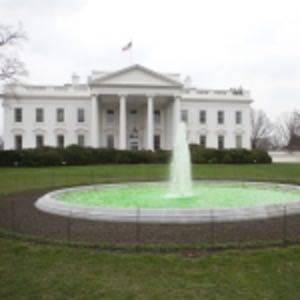In a statement on behalf of the Obama administration this morning, a trio of senior officials including the nation’s Chief Technology Officer made clear that any anti-piracy legislation passing the President’s desk would not create risks of censorship, nor would it condone any alterations to the Internet’s domain name system that could invite security dangers.

The statement, which lists all three anti-piracy bills currently under discussion – the PROTECT-IP and OPEN bills in the Senate, and the SOPA bill in the House – is a loud warning shot indicating the President’s lack of support, and likely veto, of any legislation that requires tampering with the structure of the Internet to enable enforcement.
The statement was issued just after 8:00 am ET, and was signed by Office of Management and Budget IP Enforcement Coordinator Victoria Espinel, U.S. Chief Technology Officer Aneesh Chopra, and National Security Staff Cybersecurity Coordinator Howard Schmidt. It comes in response to two online petitions created on the Whitehouse.gov Web site urging the President to veto SOPA “and any other future bills that threaten to diminish the free flow of information.”
The statement, in its entirety, reads as follows:
Thanks for taking the time to sign this petition. Both your words and actions illustrate the importance of maintaining an open and democratic Internet.
Right now, Congress is debating a few pieces of legislation concerning the very real issue of online piracy, including the Stop Online Piracy Act (SOPA), the PROTECT IP Act, and the Online Protection and Digital ENforcement Act (OPEN). We want to take this opportunity to tell you what the Administration will support–and what we will not support. Any effective legislation should reflect a wide range of stakeholders, including everyone from content creators to the engineers that build and maintain the infrastructure of the Internet.
While we believe that online piracy by foreign websites is a serious problem that requires a serious legislative response, we will not support legislation that reduces freedom of expression, increases cybersecurity risk, or undermines the dynamic, innovative global Internet.
Any effort to combat online piracy must guard against the risk of online censorship of lawful activity and must not inhibit innovation by our dynamic businesses large and small. Across the globe, the openness of the Internet is increasingly central to innovation in business, government, and society and it must be protected. To minimize this risk, new legislation must be narrowly targeted only at sites beyond the reach of current U.S. law, cover activity clearly prohibited under existing U.S. laws, and be effectively tailored, with strong due process and focused on criminal activity. Any provision covering Internet intermediaries such as online advertising networks, payment processors, or search engines must be transparent and designed to prevent overly broad private rights of action that could encourage unjustified litigation that could discourage startup businesses and innovative firms from growing.
We must avoid creating new cybersecurity risks or disrupting the underlying architecture of the Internet. Proposed laws must not tamper with the technical architecture of the Internet through manipulation of the Domain Name System (DNS), a foundation of Internet security. Our analysis of the DNS filtering provisions in some proposed legislation suggests that they pose a real risk to cybersecurity and yet leave contraband goods and services accessible online. We must avoid legislation that drives users to dangerous, unreliable DNS servers and puts next-generation security policies, such as the deployment of DNSSEC, at risk.
Let us be clear–online piracy is a real problem that harms the American economy, threatens jobs for significant numbers of middle class workers and hurts some of our nation’s most creative and innovative companies and entrepreneurs. It harms everyone from struggling artists to production crews, and from startup social media companies to large movie studios. While we are strongly committed to the vigorous enforcement of intellectual property rights, existing tools are not strong enough to root out the worst online pirates beyond our borders. That is why the Administration calls on all sides to work together to pass sound legislation this year that provides prosecutors and rights holders new legal tools to combat online piracy originating beyond U.S. borders while staying true to the principles outlined above in this response. We should never let criminals hide behind a hollow embrace of legitimate American values.
This is not just a matter for legislation. We expect and encourage all private parties, including both content creators and Internet platform providers working together, to adopt voluntary measures and best practices to reduce online piracy.
So, rather than just look at how legislation can be stopped, ask yourself: Where do we go from here? Don’t limit your opinion to what’s the wrong thing to do, ask yourself what’s right. Already, many members of Congress are asking for public input around the issue. We are paying close attention to those opportunities, as well as to public input to the Administration. The organizer of this petition and a random sample of the signers will be invited to a conference call to discuss this issue further with Administration officials and soon after that, we will host an online event to get more input and answer your questions. Details on that will follow in the coming days.
Washington needs to hear your best ideas about how to clamp down on rogue websites and other criminals who make money off the creative efforts of American artists and rights holders. We should all be committed to working with all interested constituencies to develop new legal tools to protect global intellectual property rights without jeopardizing the openness of the Internet. Our hope is that you will bring enthusiasm and know-how to this important challenge.
Moving forward, we will continue to work with Congress on a bipartisan basis on legislation that provides new tools needed in the global fight against piracy and counterfeiting, while vigorously defending an open Internet based on the values of free expression, privacy, security and innovation. Again, thank you for taking the time to participate in this important process. We hope you’ll continue to be part of it.
The statement indicates outright support for the position put forth by the petitioners, and suggests it would be their recommendation to the President as well that anti-piracy legislation in its current form should be vetoed.
That President Obama himself has not made a statement is probably intended to help him preserve his official position as against online piracy. However, this recommendation will very likely be heeded, and this move may slow, if not halt, any legislative activity on this matter for the remainder of this term in the Senate. In the House, which remains under Republican control, the SOPA bill (minus the court order provision that constituted its main enforcement provision) may still be voted on, but the chances of it facing reconciliation with a Senate version of the same bill are now extremely minimal.
An imminent show of dissent from the Administration against current anti-piracy legislation would likely have been the trigger for Sen. Patrick Leahy’s (D – Vt.) decision Thursday to remove the court order provision from his PROTECT-IP bill. That led to Rep. Lamar Smith’s decision Friday to remove the corresponding provision from his SOPA bill.










